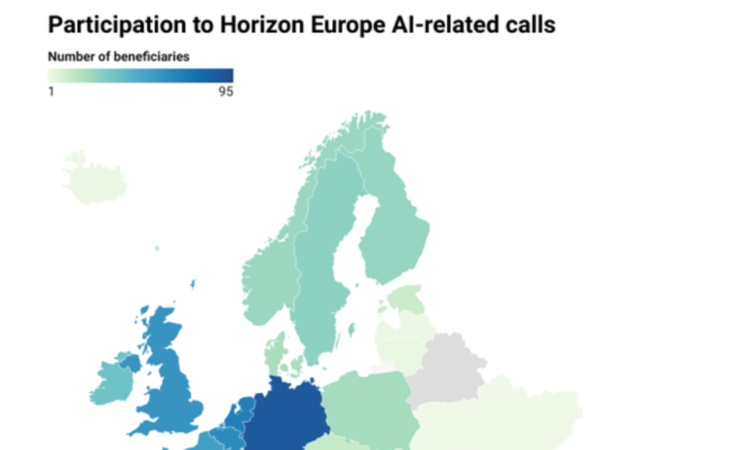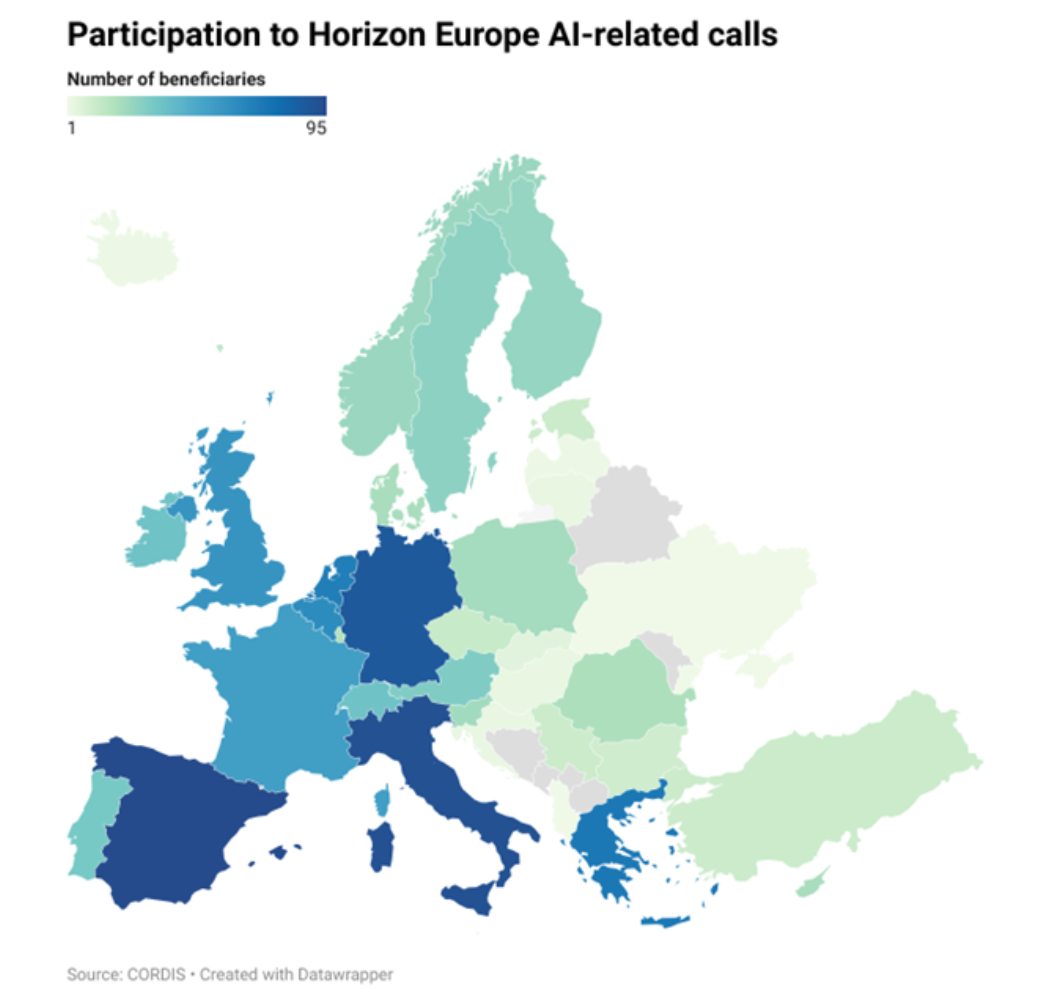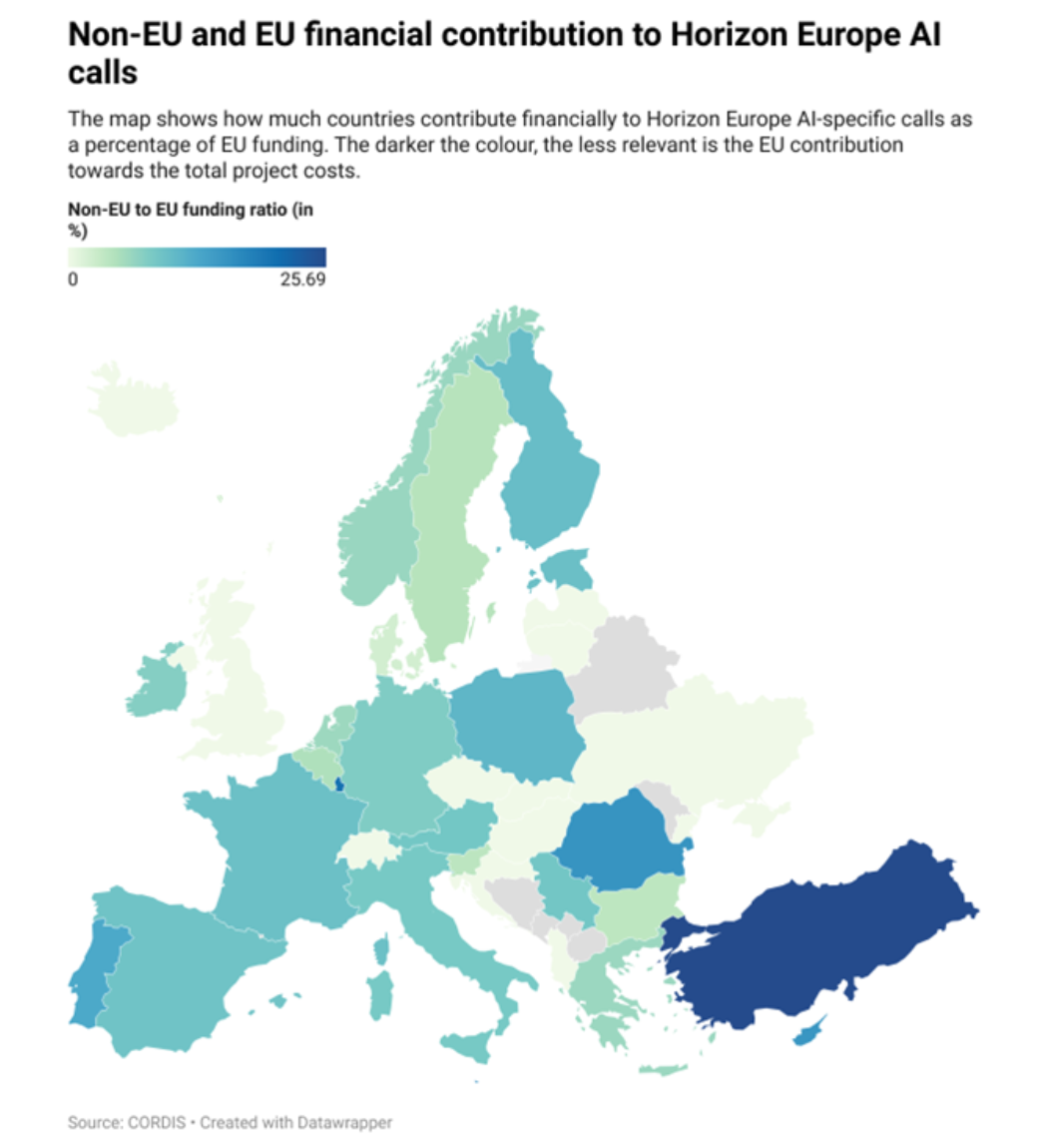

The EU may have adopted a cohesive R&I strategy for artifical intelligence but participation and funding relating to Horizon Europe AI initiatives paint a geographically imbalanced picture, with disparities starkly evident in eastern member states.
Germany, Italy and France remain the main winners when it comes to European funding programmes. Meanwhile, France and Germany also have the highest national funding programmes, with the two countries recently announcing they would further boost their domestic AI industries with around €500 million.
And as EU negotiators scramble to strike a deal on a ground-breaking regulatory framework, Europe faces a €10 billion funding deficit compared to major players like China and the US.
The European Commission has been putting €1 billion per year into AI technologies through Horizon Europe and the Digital Europe scheme. Together with complementary investments from the private and members states, this adds up to around €20 billion available for the sector.
Most of the funding for AI allocated as part of Horizon Europe’s Pillar II is concentrated in the cluster dedicated to transitions in digital, industry and space. Funded projects range from protecting fundamental values from the use of unregulated AI, to promoting the trustworthy use of artificial intelligence.
Horizon Europe calls between 2021 and 2023 which explicitly mention AI in their title and for which data is available, show participation is concentrated in western European member states. Italy tops the list with 247 beneficiaries, followed closely by Spain (246) and Germany (190). The Netherlands (108), France (100), the UK (92) and Belgium (90), are also among the top eight. A noteworthy geographical exception here is Greece, which has won 178 grants.
Switzerland plays a major role in AI-related research within Horizon, with 59 entities participating, despite its current exclusion from receiving EU funding from the research programme.
Norway (41), Finland (32), Denmark (30) and Sweden (29) have similar participation rates compared to Portugal (55), Ireland (46), Austria (44), Slovenia (36) and Cyprus (31).
At the lower end of the spectrum, in eastern member states, Poland and Romania are most involved with 26 and 24 participations respectively. This underlines the geographical imbalance, which reflects a general gap in AI readiness across the continent.
Serbia (17), Turkey (14) and Israel (10) are the associated countries with the highest participation rates. They are followed by Ukraine (5), the US (5) and Japan (4). The Beijing-based BGRIMM Technology Group appears to be the only Chinese participant in AI-focused calls.
The top five beneficiaries of EU funds for calls in this field are the Centre for Research and Technology Hellas (Greece), the Fraunhofer-Gesellschaft (Germany), the German Research Centre for Artificial Intelligence (Germany), Leuven University and Sintef (Norway). Together they received more than €41 million of EU funding between 2021 and 2023.
It is interesting to note that the contribution of SMEs to these calls is highest in those countries in which overall participation is relatively low. For instance, in Cyprus and Estonia SMEs account for more than 80% and 72% of participants, respectively.







